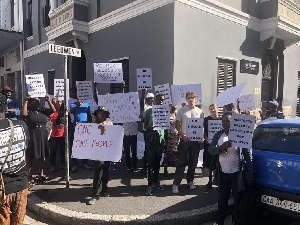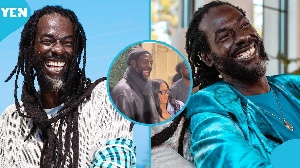Africa News of Friday, 16 May 2025
Source: www.ghanawebbers.com
South Africa: Court Declares Asylum 'Filtering' System Unconstitutional
Asylum Seekers Can Access System Without Valid Transit Visas
The Western Cape High Court has ruled that asylum seekers must access the asylum system, even without valid transit visas. The court found parts of the Refugees Act unconstitutional. This decision came after a case brought by the Scalabrini Centre. They argued that filtering asylum seekers risks sending them back to countries where they face persecution. The matter will now go to the Constitutional Court for confirmation.
The court did not issue a temporary interdict against deportations. Asylum seekers must approach courts individually if they feel unlawfully excluded from the system. The Scalabrini Centre in Cape Town initiated this legal challenge. They claimed amendments made in January 2020 endangered refugees by allowing deportation before their applications were considered.
These amendments allowed immigration officers to deny access based on an initial interview. Scalabrini argued this process was unconstitutional and violated asylum seekers' rights. Immigration officers had sole discretion unless "compelling reasons" were presented, according to Scalabrini.
This case is part two of Scalabrini's legal battle. In August 2024, they secured an interim interdict halting deportations of asylum seekers. The main application was heard in February before Judges Judith Cloete, Lister Nuku, and Acting Judge Shami Kholong.
During the hearing, it was revealed that since granting the interdict, access to the asylum system had been effectively shut off for new applicants. Arrests continued for those seeking asylum without valid visas, leading to overcrowded prisons.
Judge Judith Cloete noted that earlier arguments focused on specific refugee cases but now addressed broader constitutional issues. She emphasized that foreign nationals without valid transit visas should not have to prove their reasons for lacking one just to access their rights as asylum seekers.
Non-refoulement is a key principle in international law preventing governments from returning individuals to places where they face danger or persecution. Government representatives argued that provisions created a "safety valve" for foreigners unlawfully in South Africa.
However, Scalabrini contended that requiring people to meet bureaucratic criteria violated non-refoulement principles and constituted a barrier rather than protection.
Judge Cloete stated immigration officers must determine if valid reasons exist for lacking a transit visa. She highlighted that unfavorable determinations could lead directly to deportation, undermining non-refoulement protections enshrined in law and international treaties ratified by South Africa.
The Helen Suzman Foundation (HSF) supported Scalabrini's position as friends of the court, emphasizing harm caused by these provisions on children facing deportation with parents.
Judge Cloete affirmed children's rights as individual bearers and stressed they should not suffer due to parental mistakes regarding asylum applications.
Regarding relief options, Judge Cloete explained courts can grant temporary relief pending confirmation from the Constitutional Court about constitutional validity.
Scalabrini requested a temporary interdict; however, Judge Cloete deemed this too far-reaching and inappropriate at this stage. She noted unintended consequences had already led to shutdowns within the asylum system since granting the initial interdict.
She acknowledged potential practical difficulties if another temporary interdict were issued but maintained caution due to significant implications for many individuals involved.
Ultimately, she suspended her declaration of invalidity until after Constitutional Court proceedings conclude and ordered government respondents to cover 80% of Scalabrini's costs while discharging the previous interim interdict granted in August 2024.











